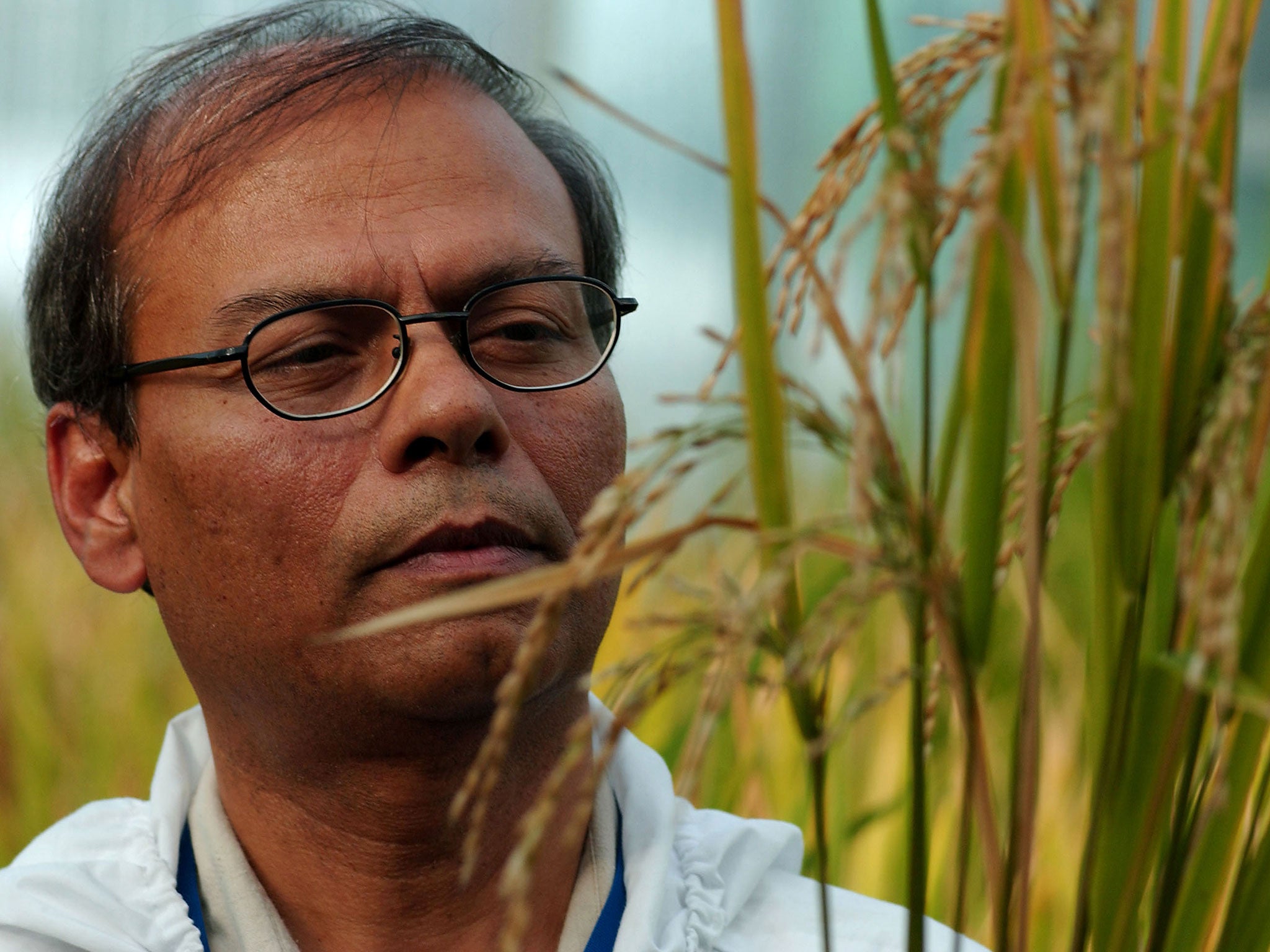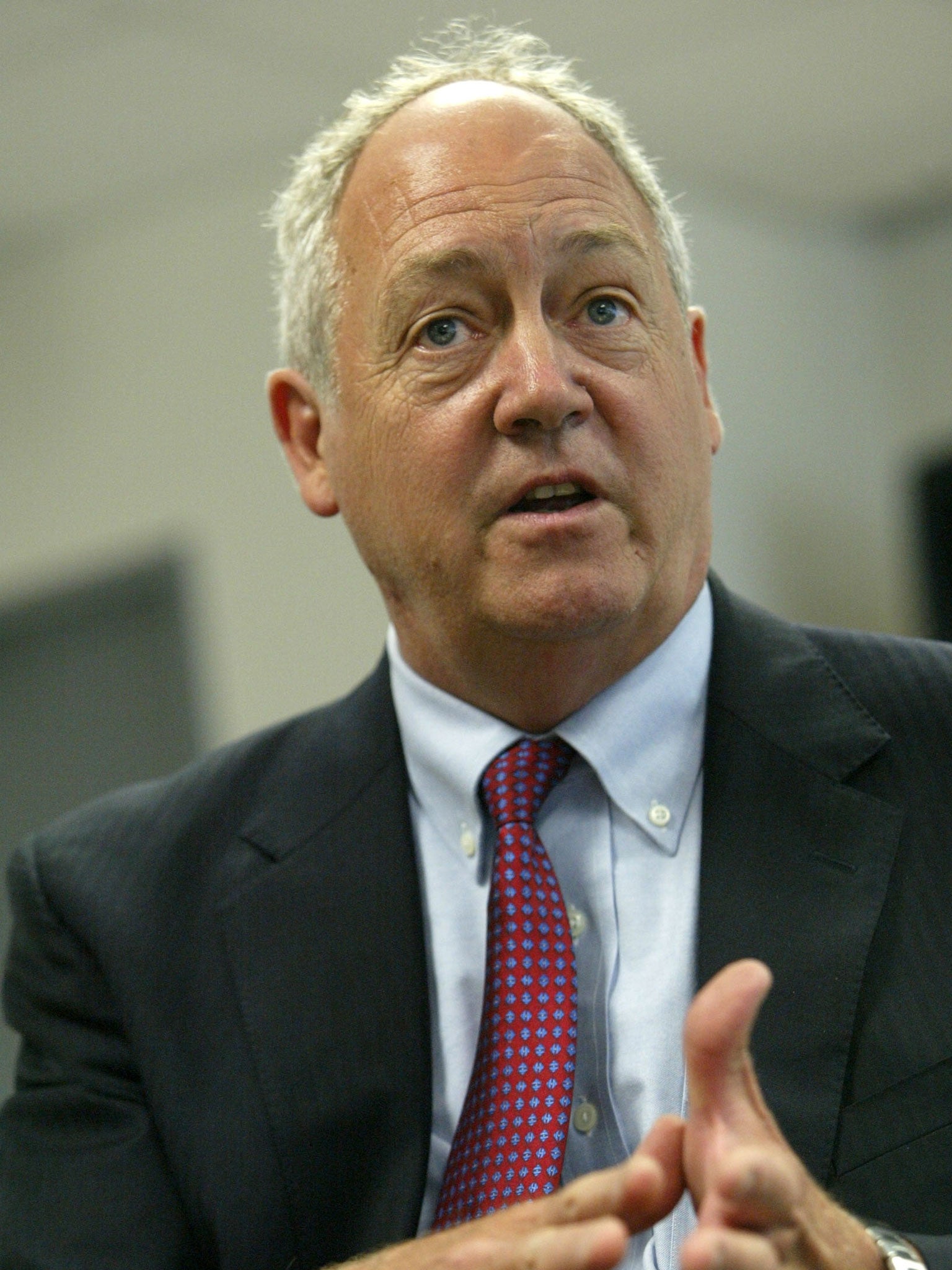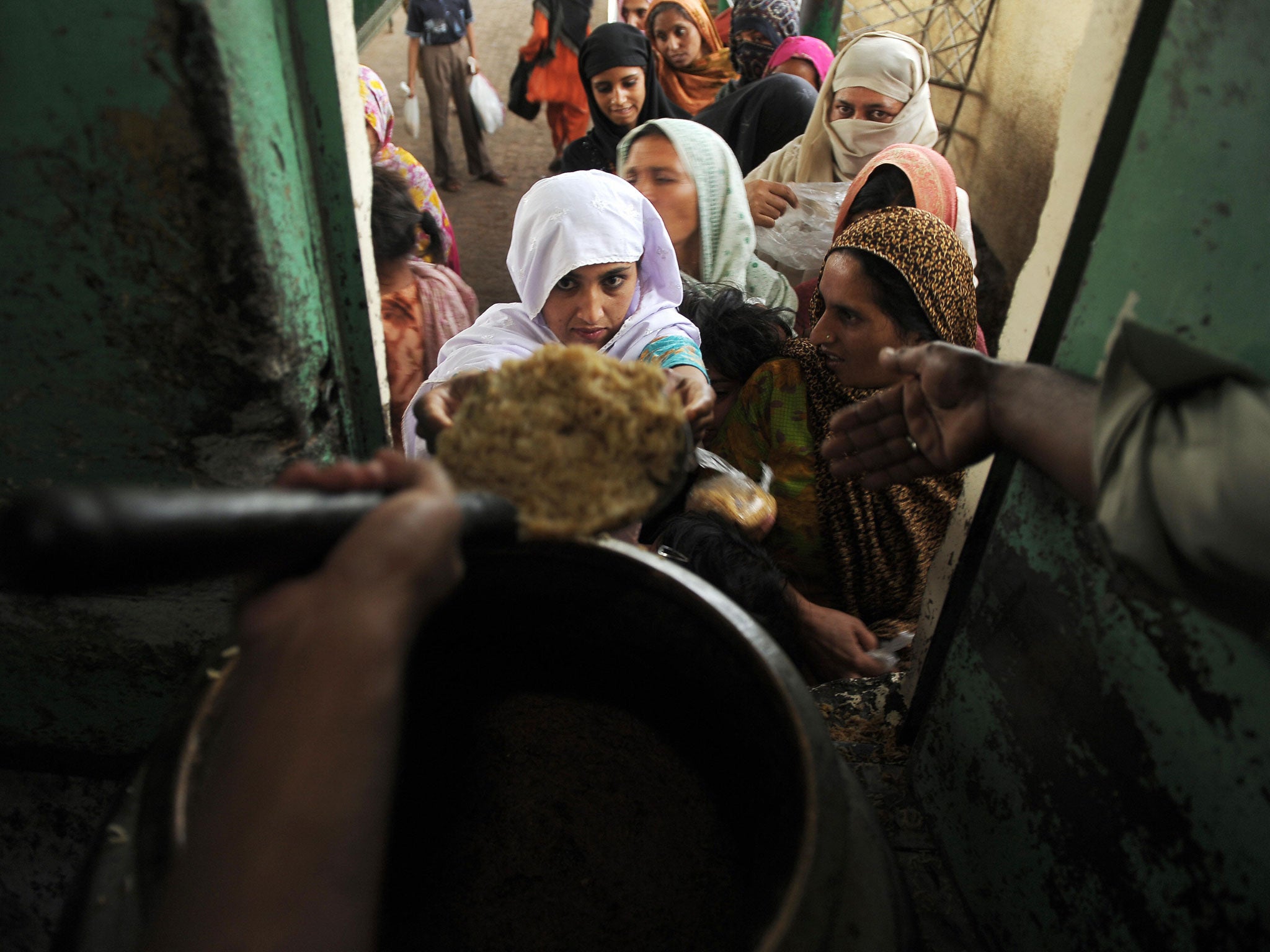Former Greenpeace leading light condemns them for opposing GM 'golden rice' crop that could save two million children from starvation per year
Canadian ecologist Dr Patrick Moore accuses Greenpeace of committing a "crime against humanity"

Greenpeace has blood on its hands and is committing a “crime against humanity” by actively opposing the introduction of a genetically modified (GM) rice crop that could prevent the deaths of more than two million children a year, according to a founder-member of the world’s largest and most prominent environmental group.
Patrick Moore, a Canadian ecologist who joined the inner circle of Greenpeace in 1971, a year after the organisation was established, has made an impassioned attack on the environmental group for blocking “golden rice”, a GM crop fortified with vitamin A genes.
Dr Moore, who is due to protest outside the UK headquarters of Greenpeace in London on Friday, told The Independent that the environmental group has strayed well beyond its original humanitarian remit by opposing golden rice and the health benefits it could bring to some of the poorest children in the world.
“There are 250 million children living in the tropics who are vitamin A deficient and they need this vitamin. Golden rice can deliver it to them because they eat rice every day and because that’s all that they can afford,” Dr Moore said.
“The fact is vitamin A deficiency is the biggest killer of children in the world today. Unicef estimates that a little over eight million children die prematurely each year from all causes such as diseases like malaria, TB and HIV-Aids. But more than 25 per cent of them die from vitamin A deficiency, which is essential for eyesight and the immune system,” he said.
“Two million children a year are dying, and every year it is delayed, another two million kids are dying. The blood of that is on the hands of the people who have made it impossible to make an exception for golden rice.”
Greenpeace has campaigned against golden rice for more than a decade, saying that it is an unnecessary diversion from the real causes of vitamin-A deficiency. Golden rice, which is modified with extra genes for beta-carotene, a precursor of vitamin A, is a technical fix designed to boost the profits of western agrichemical companies as the expense of those who are too poor to eat anything but rice, Greenpeace argues.

Dr Moore represents the growing backlash against Greenpeace and its anti-GM campaign, arguing that the environmental group is anti-science, anti-humanitarian and against the only workable solution that could end a situation where millions of children are going blind and becoming seriously ill simply for the lack of an essential dietary nutrient.
“If vitamin A deficiency was a disease, and golden rice was the cure, it would have been introduced years ago… and for Greenpeace to continue to oppose it is a crime against humanity, which is defined as to knowingly contribute to the suffering and death of the civilian population,” Dr Moore said.
“Their opposition has resulted in delays and now they are supporting the tearing up of field trials, causing further delays. This has resulted in a delay in the introduction of the rice, so whatever way you want to put it, they are culpable in the deaths of millions of children.”
Greenpeace, however, said that vitamin supplements and the addition of green, leafy vegetables to the diet of vitamin-A deprived children has already shown to work in places such as the Philippines, where vitamin-A deficiency has fallen from 47 per cent to 15 per cent.
“Vitamin-A deficiency is already dropping so rapidly in the Philippines that it may have ceased to be a significant problem before golden rice comes onto the market,” said Doug Parr, Greenpeace’s chief scientist.
Dr Moore counters by saying that it is “criminal” to try to deceive people in the west by saying there are viable alternatives to golden rice, and that the technology is still not ready.
“They are saying that it is better to eat a balanced diet with green leaves. That’s like saying ‘let them eat cake’. These children don’t have access to fresh leaves; they are living in urban slums in abject poverty.”
He also believes that vitamin pills are not the answer.

“You would need to deliver vitamin pills to 250m children on a regular basis forever. That is not sustainable. It would cost billions of dollars to do that if it were ever to get done,” Dr Moore said.
“They say you can’t have the cure and then they make money campaigning against it. That’s why they have blood on their hands because they are actually raising money opposing golden rice and then they say there are better ways – do they not have a moral obligation to help with the better ways? They do nothing, that’s the immorality of it.
“It’s a double whammy. First they deny the cure, and that’s immoral, then they say there are better ways, but do nothing except put the money they raise in the bank for themselves.”
Dr Moore, who left Greenpeace in 1986 and has led something of a one-man campaign against the group, said that the convoluted regulatory process governing the introduction of GM crops is effectively blocking the introduction of golden rice in many parts of the world.
“Some people say it’s the regulatory process that has caused the delay. But guess who’s responsible for this ridiculous regulatory process – Greenpeace and their allies making all this fuss about ‘Frankenstein food’ at the beginning,” he said.
“We have all this regulatory bureaucracy for GM food when in fact we have no reason to believe that GM food is any riskier than mutated seeds – all of our pasta is from mutation-engineered seed. There is no reason to treat GM crops any differently from seeds resulting from mutational or conventional breeding.”
Dr Moore said that the original motivations for setting up Greenpeace in 1970 included the belief that the humans should be part of the solution to the world’s environmental problems. The message has since been lost, he explained.
Dr Moore said: “At the start we had a strong humanitarian aspect. We opposed nuclear testing because we opposed nuclear war – that was the ‘peace’ in Greenpeace. But then we drifted into a state where humans were depicted as the enemies of the Earth.”
Environmental Heretics: The men who changed their minds
Mark Lynas: in the 1990s Lynas took an active role in destroying GM crops, believing they were harmful to health, the environment and to the farmers who grew them. He has since campaigned for their introduction, arguing they will help to feed a growing global population.
Stewart Brand: early American environmentalist and founder of the The Whole Earth Catalog, Brand has challenged the environmental movement to accept GM crops and nuclear power, and has argued that the growth of cities is good because it leads to a lower birth rate and a better life for the poorest people.
James Lovelock: maverick scientist and inventor who formulated the Gaia theory that the Earth was a self-regulating system, much like a living organism. Lovelock has long argued for GM technology and nuclear power, saying that he would be happy to have nuclear waste buried in his garden.
George Monbiot: the political activist, author and environmentalist has held a deep antipathy towards the nuclear industry for many years but in 2011 announced that he now believes that nuclear power will be critical to the transition to a low-carbon world. He says nuclear power is preferable to and safer than coal.
Join our commenting forum
Join thought-provoking conversations, follow other Independent readers and see their replies
Comments
Bookmark popover
Removed from bookmarks